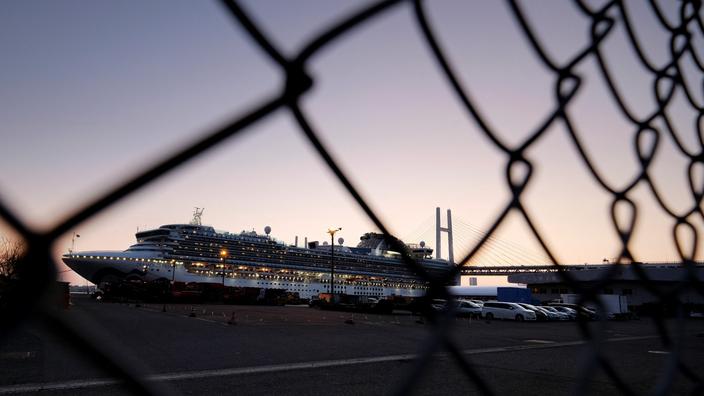A year ago, David Abel and his wife Sally endured the endless quarantine of the Diamond Princess, this liner infested by the coronavirus and stranded near the Japanese coast.
And yet, today, they can't wait to get back on the cruise.
Like some 700 other passengers, this British couple had been infected.
The quarantine then imposed on the boat by the Japanese authorities had turned into a disaster, resulting in 13 deaths.
"We are impatient to get back to sea,"
said Mr. Abel this month on his YouTube page, explaining that he has already booked no less than five cruises for 2021-2022.
The global cruise industry intends to rely on these kinds of enthusiastic customers to navigate calm waters again, after a long pause forced by the pandemic.
Analysts don't expect cruises to return to normal until the second half of 2021 at the earliest.
But they are already seeing signs of recovery, with an increase in bookings in parallel with that of vaccinations around the world.
To read also: Nicolas Dubreuil: "Cruises, in the future, will have to be more committed"
"Incredibly unreal" experience
When the Diamond Princess arrived in front of the port of Yokohama, near Tokyo, on February 3, 2020, nothing foreshadowed the trials to come.
At the time, the new coronavirus had officially caused 425 deaths, all in China, and the epidemic seemed distant for the rest of the world.
Twenty cases of infections had been identified in Japan, and restrictions on access to the country only concerned travelers from the Chinese province of Hubei, where the epidemic began at the end of 2019 in the metropolis of Wuhan.
A few days earlier, a passenger on the Diamond Princess had tested positive after disembarking in Hong Kong.
Also on February 4, the Japanese authorities decided to quarantine the boat, with its 2,666 passengers and 1,045 crew members.
Tests carried out laboriously with the first Covid-19 diagnostic devices, not always reliable, revealed the extent of the health crisis on board, despite the confinement of passengers in their cabins.
A year later, heavy restrictions weighed on cruise ships.
Canada banned them from its waters until February 2022, and the United States advises against embarking there.
US health authorities have, however, published rules to allow a gradual recovery, requiring ships to have a laboratory on board to test passengers, to require masks to be worn and to limit trips to seven days.
Read also: Covid-19: the United States will authorize the resumption of cruises
Resumption of reservations
So it's no surprise that many cruise lines are still docked: Carnival Cruises and Norwegian Cruise Line are aiming for a recovery in April and May, respectively.
But there are reasons for hope, notes Patrick Pourbaix, general manager for France, Belgium and Luxembourg of MSC Cruises, which relaunched its excursions in the Mediterranean last August.
Its reservations in the world have returned to 60% of pre-pandemic levels for this summer, and to 80% for the winter of 2021-2022: it is
"not brilliant, but not catastrophic"
, estimates - he.
To read also: Erminio Eschena (CLIA France): "Cruise passengers have all the weapons to recover from the coronavirus"
A former Filipino crew member of the Diamond Princess told AFP he was eager to return to work despite his traumatic experience.
"We knew the virus was spreading but we were asked to work,"
he recalls.
“We were very scared”.
However, being out of work since has been
"very difficult and stressful"
, and he believes operators will ensure crew safety from now on.

